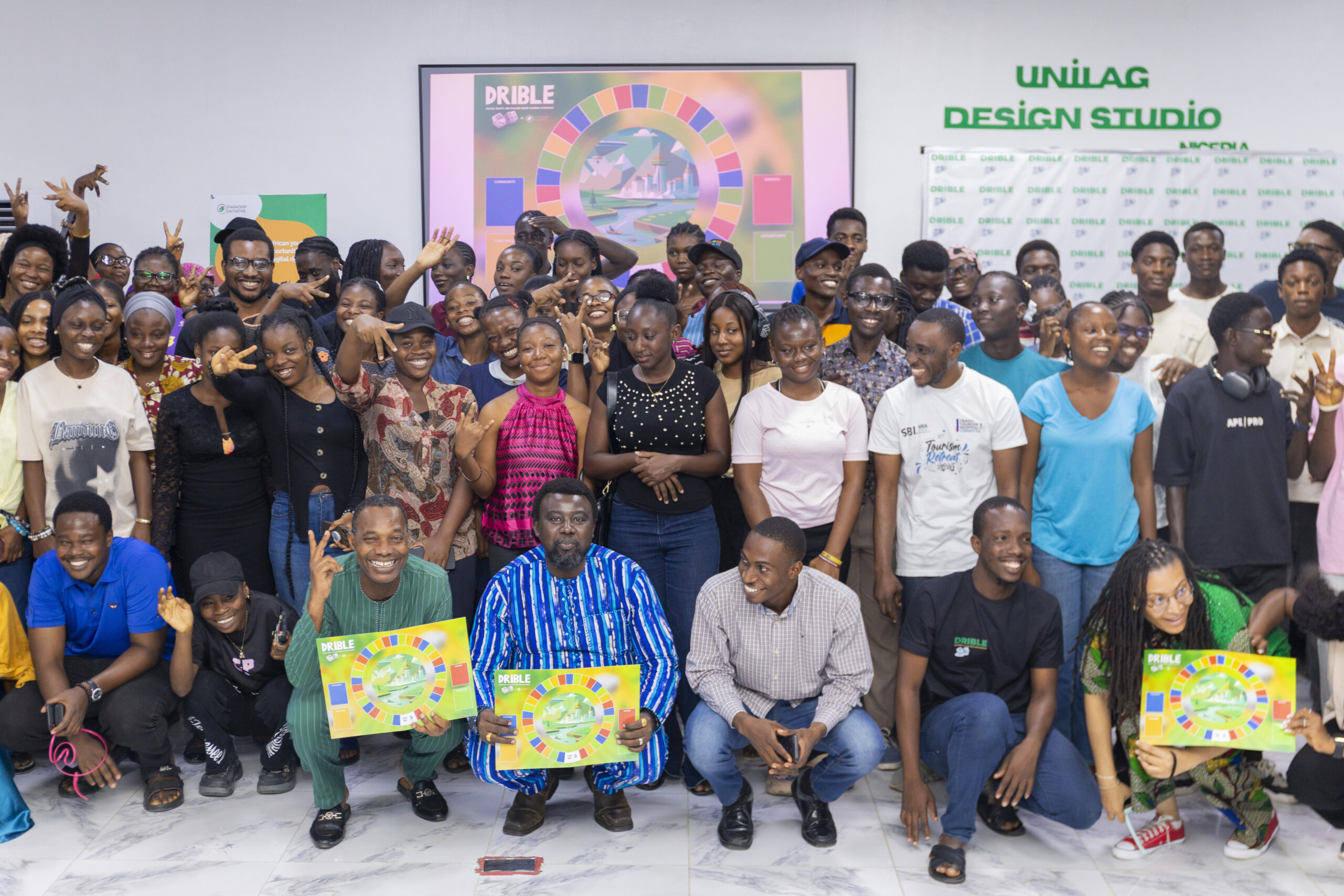Telecom
Phase3 Telecom Deploys Transmission Solutions

Phase3 Telecom, an indigenous fibre infrastructure provider, has commenced the deployment of innovative interoperability solutions to it various clientele across the economy, Mr. Stanley Jegede, chief executive officer of the company has said.
The deployment is part of its strategic solutions roll-out to telecommunications operators in the country.
Mrs. Morayo Nwabufo, the company’s Communications manager quoted Jegede as adding that the deployment would significantly enhance its transmission backbone services to clients in various sectors of the economy.
“This move is designed to bring into full and sustainable reality the company’s promise to drive the needed alignment of interoperable transmission backbone for possible and effective broadband service in the country with great focus on the health, education and financial sectors,” he said.
According to him, “For instance, to promote improved healthcare in the country, Phase3 telecom’s focus is to use this innovative solution help health information systems work together faster and better within and across organisational boundaries in order to advance the effective delivery of healthcare for individuals and communities which currently is at a worrisome state.”
Jegede noted that the company’s interoperability solutions would offer the possibility of uniform movement of healthcare data, presentation of data, user controls, safeguarding data security and integrity, protection of patient confidentiality and assurance of a common degree of system service quality.
He stated that the deployment would in a great way change and compliment, significantly the federal government’s previously stunted, but now growing effort to deepen broadband penetration in the country which is evident in recent efforts to upgrade network from 3.75G to 4G by some operators, which is a major pointer to rapid growth in the mobile broadband ecosystem.
Jegede, however, lamented the restrictions in the working together of the nation’s three major optic fibre systems especially as they are not designed with open access architecture in mind.
“This is indeed a major challenge as interoperability in telecommunications and technical system engineering sense; is the ability of systems, units, or forces to provide services to and accept services from other systems, units or forces and to use the services exchanged to enable them to operate effectively together,” he said.
He added, “The major advantage here is that when such systems achieve interoperability either by adhering to published interface standards or by making use of a broker of services; it instantaneously converts one’s system interface into another system’s interface.”
According to him, “Phase3 Telecom’s high and consistent commitment level to ensuring interoperable transmission backbone led to such partnerships as the open access network model designed in partnership with Dancom, a subsidiary of the Dangote Group to tackle envisaged problems in providing top notch services to clients.”
In another development, the company announced that it has so far invested USD 110 million to enable broadband to get to under-served and unserved areas of Nigeria.
Ajibade Momolosho, the company’s director of engineering, said recently that between now and 2016, some USD 68 million more will be invested in broadband development and Phase3 will be expanding its business frontiers to Accra and Senegal in the next eighteen months.
He said the company has so far deployed 4500 km of fibre optic cable. On its mandate to be West Africa’s IP backbone, he maintained that Phase3 Telecom has contributed immensely to the development of the telecommunications industry in Nigeria so far in its ten years of existence.
Telecom
MTN’s ₦31.75Bn Investment in Health Lauded at Arthur Mbanefo Lecture

MTN Foundation has been spotlighted as a model for private sector-driven healthcare development in Nigeria, following commendations at the 6th Arthur Mbanefo Lecture held at the University of Lagos, Akoka.

Themed “A Healthy Nation is a Wealthy Nation: The Role of Impact Investments and Sustainable Financing in Nigeria,” the lecture featured Dr. Tolulope Adewole, Managing Director of NSIA Advanced Medical Services Limited (MedServe), as keynote speaker.
Dr. Adewole praised the Foundation’s strategic investments, noting that MTN commits 1% of its profit after tax annually to development sectors. “They’ve invested ₦31.75 billion, reaching over 32 million Nigerians. Though only 25% went to health, it accounted for 51% of all lives impacted. That’s catalytic,” he said.
He cited MTN’s dialysis centre programme as a transformative intervention for patients with kidney disease, and highlighted community-focused initiatives like the Y’ello Doctor mobile scheme and ‘What Can We Do Together’ (WCWDT) programme, which revitalised 164 Primary Healthcare Centres, including 44 in 2024 alone.
Executive Director of MTN Foundation, Odunayo Sanya, reflected on the COVID-19 pandemic’s exposure of systemic health vulnerabilities. “When COVID hit, we realised a health emergency is also an economic and social emergency,” she said.
Sanya revealed that of the 52 PHCs remodeled in 2024, only one had clean water. “I’m not a doctor, but I know you can’t live a good life without clean water,” she added, reaffirming the Foundation’s commitment to bridging healthcare gaps in underserved communities.
Telecom
PIN to Empower 20 Million Youths with New Digital Rights Board Game

Hundreds of university students across Africa are set to benefit from a new gamified learning experience on digital rights and inclusion launched by the leading pan-African non-profit organisation, Paradigm Initiative (PIN).

The Digital Rights and Inclusion Board Learning Experience (DRIBLE) is a game developed by Paradigm Initiative with support from the Open Society Foundations (OSF). The custom-designed board game provides young individuals with a fun and engaging entry point into digital rights and inclusion conversations, training sessions and storytelling tools.
The board game aims to build digital literacy, deepen understanding of online safety, and introduce young individuals to the organisation’s tools of impact. Currently being piloted in three universities: University of Lagos, Nigeria, the Catholic University of Eastern Africa (CUEA) in Nairobi, Kenya and the Dakar American University of Science and Technology (DAUST) in Dakar, Senegal, it will enhance interactions and create a holistic experience.
Speaking at the event launch at the University of Lagos, Nigeria, ‘Gbenga Sesan, Paradigm Initiative’s Executive Director, said: “PIN’s vision is to reach 20 million people through our Digital Inclusion and Digital Rights interventions. From Lagos, to Dakar, to Nairobi.. we will use the vehicle of our new Digital Rights and Inclusion Board Learning Experience (DRIBLE) which entails using gamification, training, multimedia materials, tools and other interventions to connect African youth with digital opportunities and protect their digital rights.”
‘Gbenga gave the keynote address on “Digital inclusion at PIN, our Past, Present and Future” and Nnenna Paul-Ugochukwu, the organisation’s Chief Operating Officer, said the goal of the learning experience would be instrumental in raising awareness of digital rights among the youth, building their capacity to address digital rights and inclusion issues in their communities. Prof. Olunifesi Adekunle Suraj shared a goodwill message with the students and other stakeholders.
Paradigm Initiative, which has been operational since 2007, started in a tiny cybercafe in Ajegunle, Lagos, Nigeria. Today, the organisation has expanded its wings to cover six African countries; Cameroon, Kenya, Nigeria, Senegal, Zambia and Zimbabwe, impacting the livelihoods of over 150,000 young Africans.
The launch of DRIBLE builds on the progress the organisation has made over the years in tackling the challenge of digital exclusion across Africa.
Paradigm Initiative’s tools of impact include Ripoti, a platform that enables individuals to report digital rights violations, Ayeta, a platform that provides digital security resources for stakeholders, more so human rights activists, defenders, journalists and other vulnerable groups, and the organisation’s latest short film, Whispers in the Wires.
Targeted at students, PIN rolled out a Campus Tour in the three universities on the continent starting July 15th, 2025.
Telecom
Meta Cracks Down on Fake Accounts, Deletes 10m Profiles

Meta, the parent company of Facebook, has intensified its crackdown on fake accounts and spam, announcing it removed over 10 million fake profiles and roughly 500,000 spam accounts in the first half of 2025.

The sweeping purge is part of Meta’s broader effort to combat impersonation, fake engagement, and content duplication, aiming to elevate authentic creators and improve the quality of content across its platforms.
In a blog post, Meta said: “We’re making progress. In the first half of 2025, we took action on around 500,000 accounts engaged in spammy behaviour or fake engagement. We also removed about 10 million profiles impersonating large content producers.”
Meta stressed that accounts which primarily repost or recycle content without meaningful edits will face penalties such as reduced reach and the loss of monetisation tools.
The company also warned that repeatedly sharing unoriginal content — whether videos, photos, or text — undermines the platform’s integrity by crowding out genuine voices and making it harder for new creators to grow.
To support authentic creators, Meta is rolling out new tools that automatically trace reposted content back to its original source. The company says this will help ensure rightful credit and give higher visibility to original posts.
“Pages and profiles that post mostly original content tend to enjoy wider distribution across Facebook. Simply stitching clips together or adding a watermark will no longer count as meaningful editing. Content that provides real value and tells an authentic story is likely to perform better,” Meta explained.
Creators are also being cautioned against uploading content that includes watermarks from other platforms. Such posts could see their reach restricted or lose monetisation privileges altogether.
As part of its latest update, Meta introduced post-level insights on the Professional Dashboard, allowing creators to monitor how individual posts perform. They can also check their Support Home screen to see if their content or earnings are facing restrictions.
In a parallel development, Google’s YouTube updated its monetisation guidelines, stating that content deemed mass-produced or excessively repetitive will no longer qualify for ad revenue. The announcement initially sparked concern among creators, who feared it was a blanket ban on AI-generated content. YouTube later clarified:
“We welcome creators using AI tools to enhance their storytelling, and channels that use AI in their content remain eligible to monetise.”
Both tech giants say these new policies are aimed at raising content standards and safeguarding genuine creators in a crowded and rapidly evolving digital landscape.

 Telecom3 days ago
Telecom3 days agoNCC Introduces N10m Licence Fee for Bulk SMS Service

 Telecom3 days ago
Telecom3 days agoMTN Nigeria Targets $1Bn Cloud Market with Largest Modular Data Centre

 General News3 days ago
General News3 days agoWoodhall Capital and Partners Launch ₦1.5Bn Fund

 E-Business3 days ago
E-Business3 days agoFirm Highlights Top Risks of Quantum Computing

 E-Financial2 days ago
E-Financial2 days agoZenith Banks Leads as 8 Banks Suffer N156Bn Impairment Charges

 Telecom3 days ago
Telecom3 days agoPAT Taps Osi as CEO

 General News3 days ago
General News3 days agoBurna Boy Distances Himself from Meme Coin, Labels Crypto as Fraud

 E-Financial3 days ago
E-Financial3 days agoAfrica Launches PAPSSCARD, First Pan-African Card Scheme






















